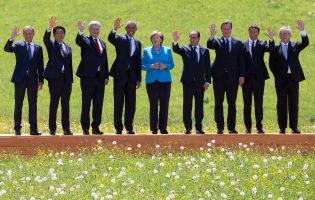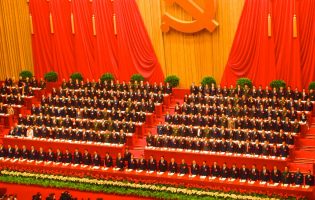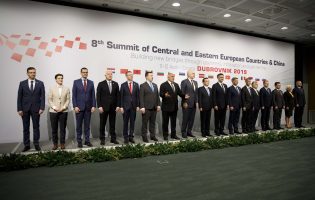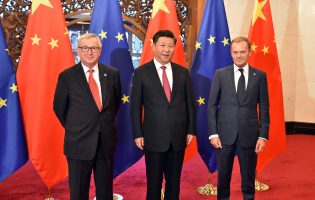
International Energy Policy at a Crossroads?
The Transatlantic Partners and the Future of Energy Energy policy is an area of international relations that has the potential to increase cooperation or spark conflict. When President Donald Trump …

Sovereignty Regained, Economic Order Uncertain: Germany’s Social Market Economy at 70
The Federal Republic of Germany gained de jure sovereignty as a nation-state on May 23, 1949, but its road to de facto sovereignty—actual power to advance its interests in the …

Advancing the German-American Alliance
Updating the Transatlantic Partnership for the Next 70 Years AGI-ECFR Berlin Symposium, May 15, 2019 The year 2019 marks several major anniversaries that trace the arc of the transatlantic relationship: …

One Year GDPR: What Comes Next?
The General Data Protection Regulation (GDPR) came into force on May 25, 2018. Many EU and U.S. businesses rushed to take measures to comply with the new requirements. The GDPR …

China: A Challenge for the Western Economic and Political System
In recent years, China has developed into an important driver of the global economy with strong economic growth. As the second largest economy in the world, China is now responsible …
Recent Authors
AGI provides knowledge, insights, and networks as tools to solve the challenges ahead.
Support Our WorkAGI Senior Fellow Peter Rashish Speaks on Trade, Intellectual Property in Washington, DC
AGI Senior Fellow and Director of the Geoeconomics Program Peter Rashish spoke on a panel on Trade and Intellectual Property at a conference on “Innovation Leadership: Commerce, Trade, Governance, and …
Ines Wagner, DAAD/AGI Research Fellow
AGI is pleased to welcome Ines Wagner as a DAAD/AGI Research Fellow from May to June 2019. Dr. Wagner is a Senior Researcher at the Institute for Social Research in …

The German Industry Strategy 2030: Inconsistent and Dangerous!
In March, the German Federal Minister for Economic Affairs and Energy, Peter Altmaier, presented the so-called National Industry Strategy 2030: Strategic guidelines for a German and European industrial policy (henceforth …

Done is Better Than Perfect: Perfectionism is no friend in addressing geopolitical challenges that impact the German economy.
German companies’ ability to perfect processes or products is unique in the global market and lends any export with a “Made in Germany” stamp a certain level of cachet. But …

From 16+1 to 17+1: The EU’s Challenge from the Rebranded China-CEEC Initiative
When Croatian prime minister Andrej Plenkovic welcomed Greece as the 17th European member of the Cooperation of Central and Eastern European countries and China at the fifth China-CEEC summit in …

Restarting the Transatlantic Partnership Before It’s Too Late
We live in an era of rapid changes. It is not the first time that mankind has faced a fundamental socio-technical transformation, but it is the first time that it …




